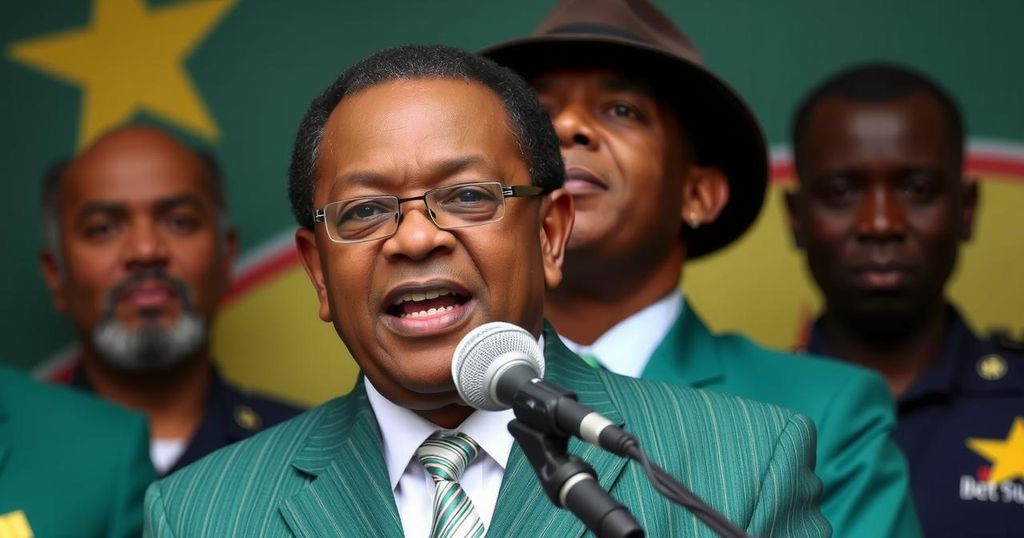World news
AFRICA, CHA, CONSTITUTIONAL COUNCIL, CORRUPTION, DANIEL CHAPO, DEMOCRACY, ELECTORAL COMMISSION, EUROPE, FRELIMO, GOVERNANCE, JUDITE SIMAO, MAPUTO, MOZAMBIQUE, NACALA - PORTO, OPPOSITION, PLATAFORMA DECIDE, POLITICS, PORTO, PORTUGAL, SOUTH AFRICA, TV SUCESSO MOZ, VENANCIO MONDLANE
Elena Martinez
0 Comments
Mozambique’s Constitutional Court Confirms Contested Election Result Amid Protests
Mozambique’s top court confirmed Frelimo’s contested election win, prompting protests from opposition claiming electoral fraud. The ruling has sparked nationwide unrest, resulting in fatalities and affecting foreign businesses. The Constitutional Council reported Chapo’s victory with 65% of the vote, lower than the electoral commission’s earlier figures, amidst ongoing claims of electoral malpractice.
The Constitutional Council of Mozambique has upheld the ruling party, Frelimo’s, victory in the contentious elections that took place in October, despite widespread assertions from opposition groups alleging electoral fraud. This ruling is anticipated to provoke intensified protests throughout the nation, particularly against the backdrop of Frelimo’s longstanding governance since 1975. Observers from the West have criticized the electoral process as lacking in fairness, with the post-election period witnessing significant civil unrest, resulting in tragic fatalities during confrontations with law enforcement.
During the formal announcement of the election outcome, where it was declared that Frelimo’s Daniel Chapo secured the presidency with approximately 65% of the votes, reports indicated immediate protests erupting in cities such as Nacala-Porto. Opposition representatives have vocally condemned the Constitutional Council’s findings, claiming that the true will of the electorate has been systematically overlooked and suppressed. Following the elections, violent clashes have reportedly claimed the lives of over 130 individuals, exacerbating a sense of instability within the nation.
The aftermath of the electoral process has also hindered foreign corporate operations, notably affecting Australian firm South32 and leading to the temporary shutdown of a critical border crossing to South Africa. Additionally, economic forecasts for Mozambique in 2024 have been adjusted downward due to these disturbances, with predictions now indicating growth below the anticipated 4.3%. In light of these developments, Frelimo has maintained its denial of any electoral misconduct despite ongoing allegations since the introduction of multiparty elections in 1994.
Mozambique’s political landscape has been dominated by the Frelimo party since the nation gained independence in 1975. The recent electoral cycle has brought to light serious allegations of electoral malpractice, particularly following the October elections where the opposition claimed that the ruling party rigged the vote. Civil unrest has unfolded in response to these claims, leading to significant casualties and impacting the economy of this Southern African nation. With upcoming forecasts indicating challenges to economic growth, the political stability in Mozambique remains precarious.
In conclusion, the confirmation of Frelimo’s election victory by the Constitutional Council has stirred considerable unrest in Mozambique, emphasizing concerns over electoral fairness. The opposition’s vehement rejection of the electoral results, coupled with violent protests and consequential economic ramifications, points to a nation grappling with political dissatisfaction. As the situation progresses, the implications for both domestic governance and international business operations in Mozambique remain critical and warrant close attention.
Original Source: www.cnn.com




Post Comment